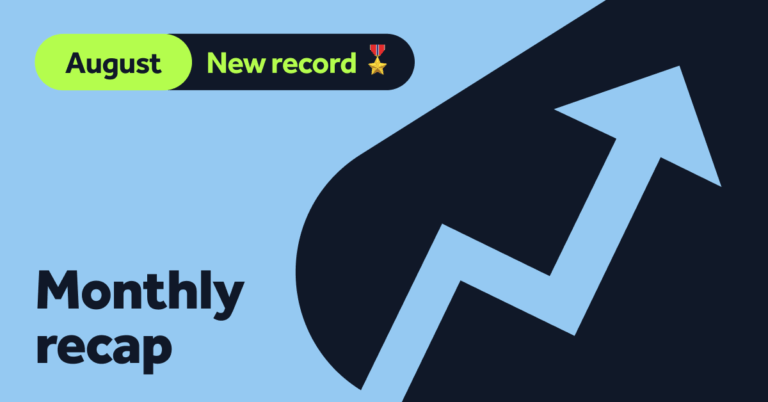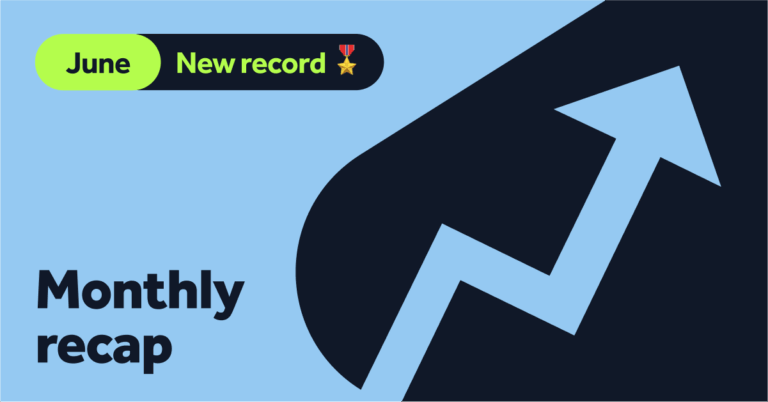For the first time since April we’re seeing an on-the-month increase in secondary market activity. This is the anticipated rebound we talked about last month. June had a decline rate of 14% and now we’re seeing a positive increase of 3% in transactions.

This noticeable increase is thanks to positive growth rates for Portfolio Manager (0.7%) and API activity (27.2%). Although manual sales saw a 3.8% decline, it still holds the biggest share (44.7%). In July, secondary market transactions totaled €546,047.56.

Current Loans
API activity continues to grow the most in the secondary market. In June, sales totaled €83,299 and have now risen to €102,064. Although Portfolio Manager’s increase was less than 1%, it’s a confident contrast to last month’s 21.5% decline. Manual transactions saw the slightest decline of 0.3%, but it accounts for €195,866 of the market share.
Overall, the increase rate for July transactions was 28.32% better than June’s decline rate of 24.16%. Only 2% of loans were sold at a discount. 58% were sold at par value, and 40% of investors made a profit on their loans.

Overdue Loans
Continuing the trend from the past few months, the majority of overdue loan sales came from manual transactions, making up 80.2% of the category. Overall, overdue loans declined by 0.4%, which is a welcome sight for investors. The total monetary value of overdue loans is now €35,738.55.

Defaulted Loans
After the last two months’ successive sharp declines and increases, we now see defaulted loan deals decrease with a mild 13.9% to €22,896. Manual transactions are still leading the pack with 84.6% of the market share, but API activity is claiming 15.4% for overdue loans. It had a massive 74.2% increase from €2,019 to €3,517.

Secondary market transactions rise for the first time after March
After three months of consecutive overall decline, the positive rebound marks the welcome rise in secondary market activity after a quiet Q2. And for the 3rd continuous month, defaulted loans beat overdue loans in transactions. This mimics the trend we saw in the pre-crisis first quarter. This trend, coupled with the stable increase we’ve been seeing, could perhaps be an indication of how things are stabilizing across the market.
Always remember, investors should not seek higher returns from buying and selling loans on the Bondora secondary market.
Enjoy what you’re reading? Get more info about the Bondora secondary market here.

